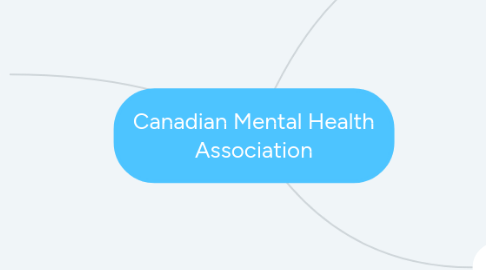Canadian Mental Health Association
by Stephanie Gee


1. Services and Programs
1.1. Services and supports to more than 1.3 million Canadians through the combined efforts of more than 11,000 volunteers and staff across Canada in over 330 communities.
1.1.1. Teenagers and young adults aged 15-24 experience the highest incidence of mental disorders of any age group in Canada (Statistics Canada).
1.2. Not Myself Today: a workplace mental health campaign
1.3. Peer Support Canada: Peer support is emotional and practical support between two people who share a common experience, such as a mental health challenge or illness.
1.4. Workplace Mental Health: provides employers and unions with in-depth training, practical resources and valuable support to address and improve psychological health and safety in the workplace.
2. Vision and Goals
2.1. Provides access to the resources people need to maintain and improve mental health and community integration, build resilience, and support recovery from mental illness.
2.1.1. Canada's oldest charitable organization.
2.2. Regional branches provides services to those with mental illness and their families.
2.2.1. Mental health means striking a balance in all aspects of one’s life: social, physical, spiritual, economic and mental.
